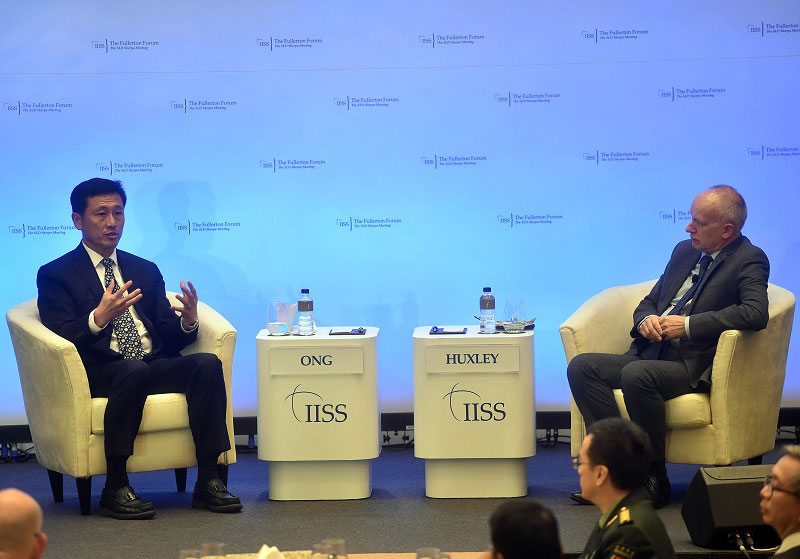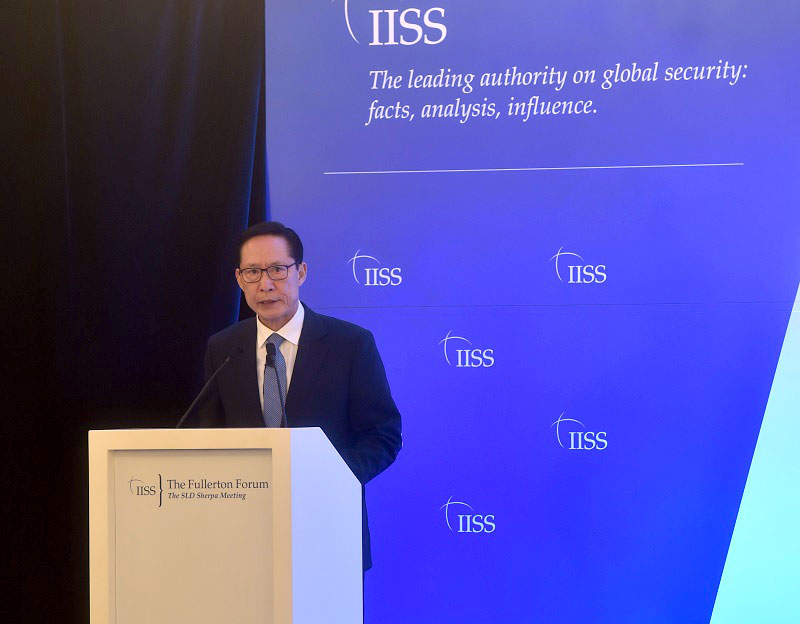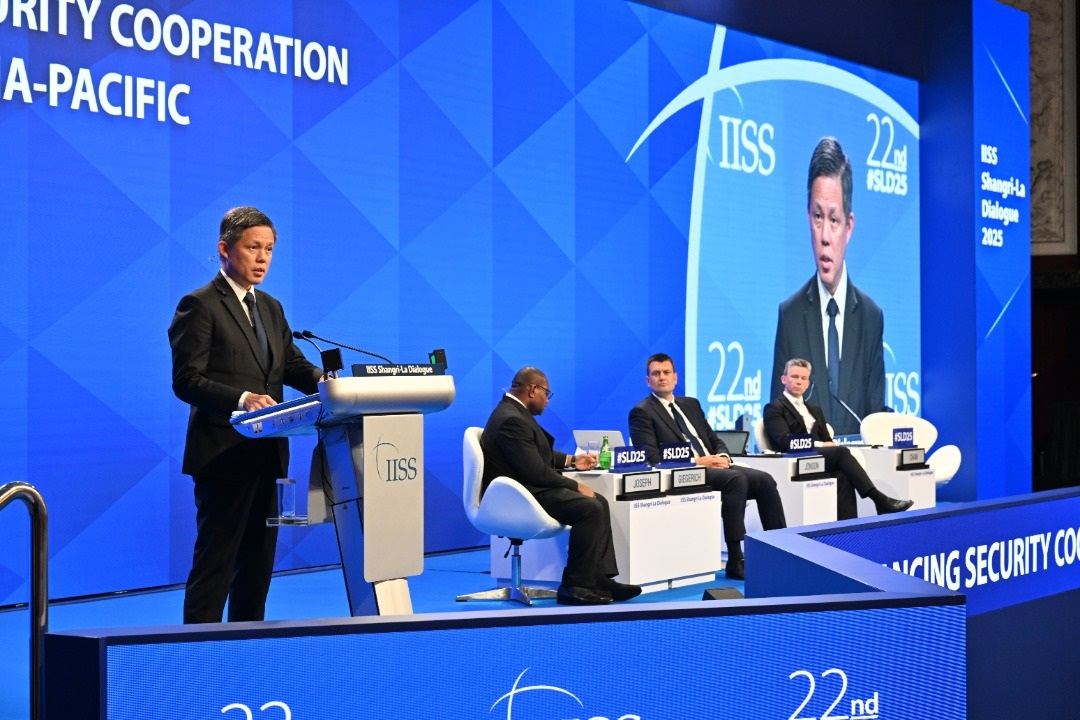DIPLOMACY
ASIA-PACIFIC COUNTRIES MUST UNITE AGAINST EMERGING THREATS: MR ONG
30 Jan 2018
Countries in the Asia-Pacific region must brace themselves for emerging security challenges that could disrupt their economic growth and development, said Second Minister for Defence Ong Ye Kung.
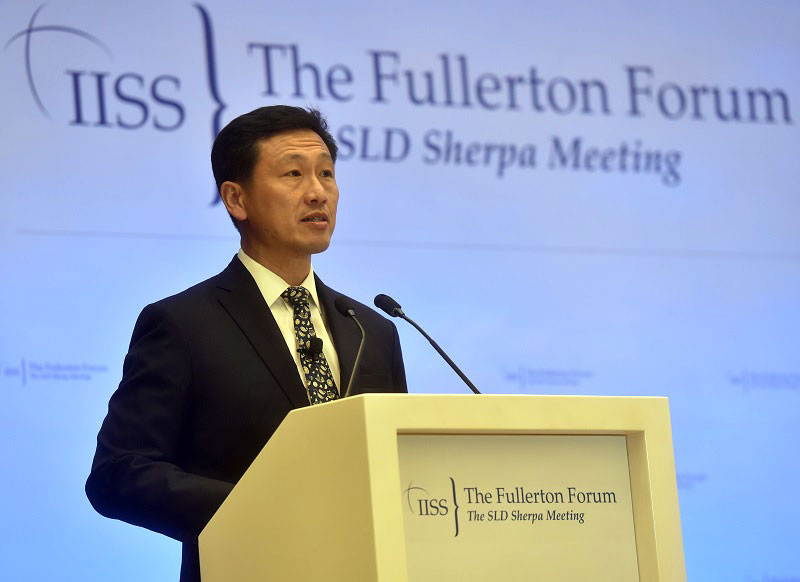
Countries in the Asia-Pacific region must brace themselves for emerging security challenges that could disrupt their economic growth and development, said Second Minister for Defence Ong Ye Kung.
The best way to overcome these is to maintain a united front through common interests and close ties, he noted.
"While these threats appear daunting, no country is alone in this endeavour. Our shared interests and interconnectedness mean that our strongest ammunition is our solidarity and unity in cooperating with one another, to ensure the overall peace and stability of the region."
Mr Ong was giving a special address on 29 Jan at the International Institute for Strategic Studies (IISS) Fullerton Forum: Shangri-La Dialogue (SLD) Sherpa Meeting.
Held from 28 to 30 Jan, the sixth edition of the annual meeting was attended by 75 delegates from around the world.
Speaking to international defence officials, senior military officers and academics during a dinner reception, Mr Ong highlighted four major security challenges that could shake the peace and stability built in the Asia-Pacific region over the past few decades: the continuing threat of terrorism; the proliferation of fake news; the conventional threat to regional stability posed by developments in the Korean Peninsula; and the retreat of globalisation towards protectionism.
Calling terrorism "one of the region's most serious preoccupations", Mr Ong noted that the Philippines Armed Forces' defeat of ISIS-linked militants in Marawi did not signal the eradication of terrorism in the region.
For example, returning fighters who had been defeated by the Syrian and Iraqi government in November last year could bring their connections and warfare expertise back to their home countries.
On fake news, he cautioned that malicious false information was being used, even by foreign parties, to attack public institutions, sow discord within society and influence national events such as elections, thereby undermining social and national unity.
Social media and technology have also facilitated the fast spread of these untruths and allowed them to multiply quickly even after being cut down.
All these could harm domestic politics as well as foreign relations, said Mr Ong.
New measures for new threats
To combat these challenges, Mr Ong urged nations to have a ready "toolkit" with both military and non-military solutions.
For instance, he shared that leaders in Singapore had taken steps to fight terrorism and fake news, such as clamping down on the spread of extreme ideologies and releasing a Green Paper to draw attention to untruths online respectively.
The Singapore Armed Forces (SAF) has also been doubling its efforts to train servicemen in urban warfare and cyber defence. In a question-and-answer segment during the dinner, Mr Ong explained that militaries like the SAF must keep up with evolving threats: "The nature of warfare has changed (and) the nature of enemies have changed I don't think we can stick to the old model of what a military should be."
Likewise, at the international level, he called for ASEAN to keep at the forefront of shifting global trends: "Beyond participation in economic integration and free trade initiatives, it is important for ASEAN to remain relevant and constructive in contributing to global peace and stability."
"ASEAN's contribution is not in trying to be a regional power, but (in) maintaining its neutrality and centrality, to keep the regional security architecture open and inclusive, and providing a natural platform for major powers to engage each other."
Mr Ong's sentiments were echoed by Republic of Korea Minister of National Defence Song Youngmoo, who had delivered a keynote address at the opening of the SLD Sherpa Meeting earlier that day.
"One country by itself cannot meet the rapidly increasing international threats. All countries must work together," he said, citing channels such as the Fullerton Forum, SLD and ASEAN Defence Ministers' Meeting-Plus that bring together civilian and government agencies to find solutions.
The Sherpa Meeting will set the tone for the SLD by providing an intersessional platform for delegates to discuss defence and security issues. The upcoming SLD will be take place in Singapore this June.
ALSO READ IN DIPLOMACY
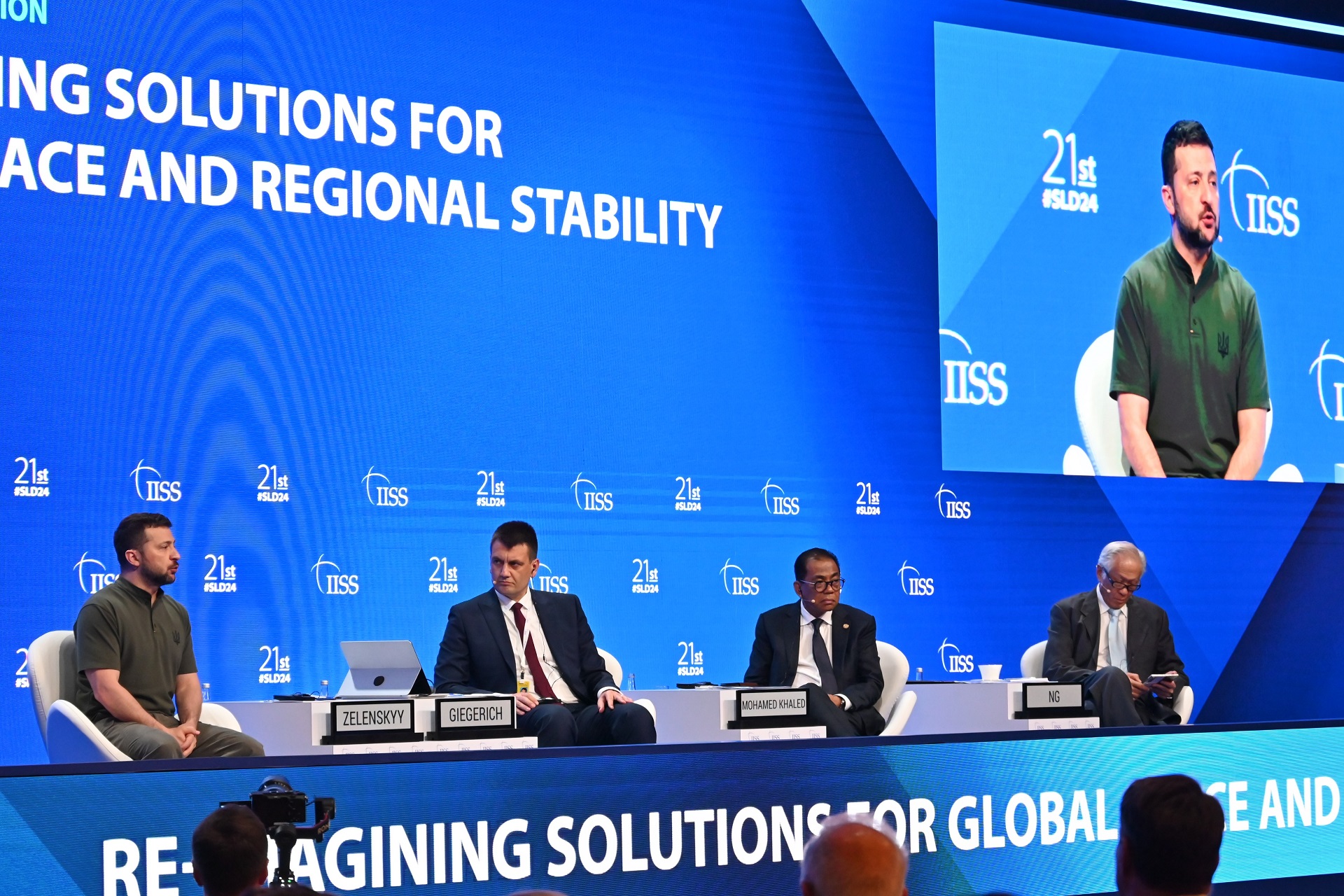
A call for peace at Shangri La Dialogue
02 Jun 2024
A repeated call for peace, especially in Asia. This was Minister for Defence Dr Ng Eng Hen's central message at the 21st Shangri La Dialogue (SLD), held from 31 May to 2 Jun.
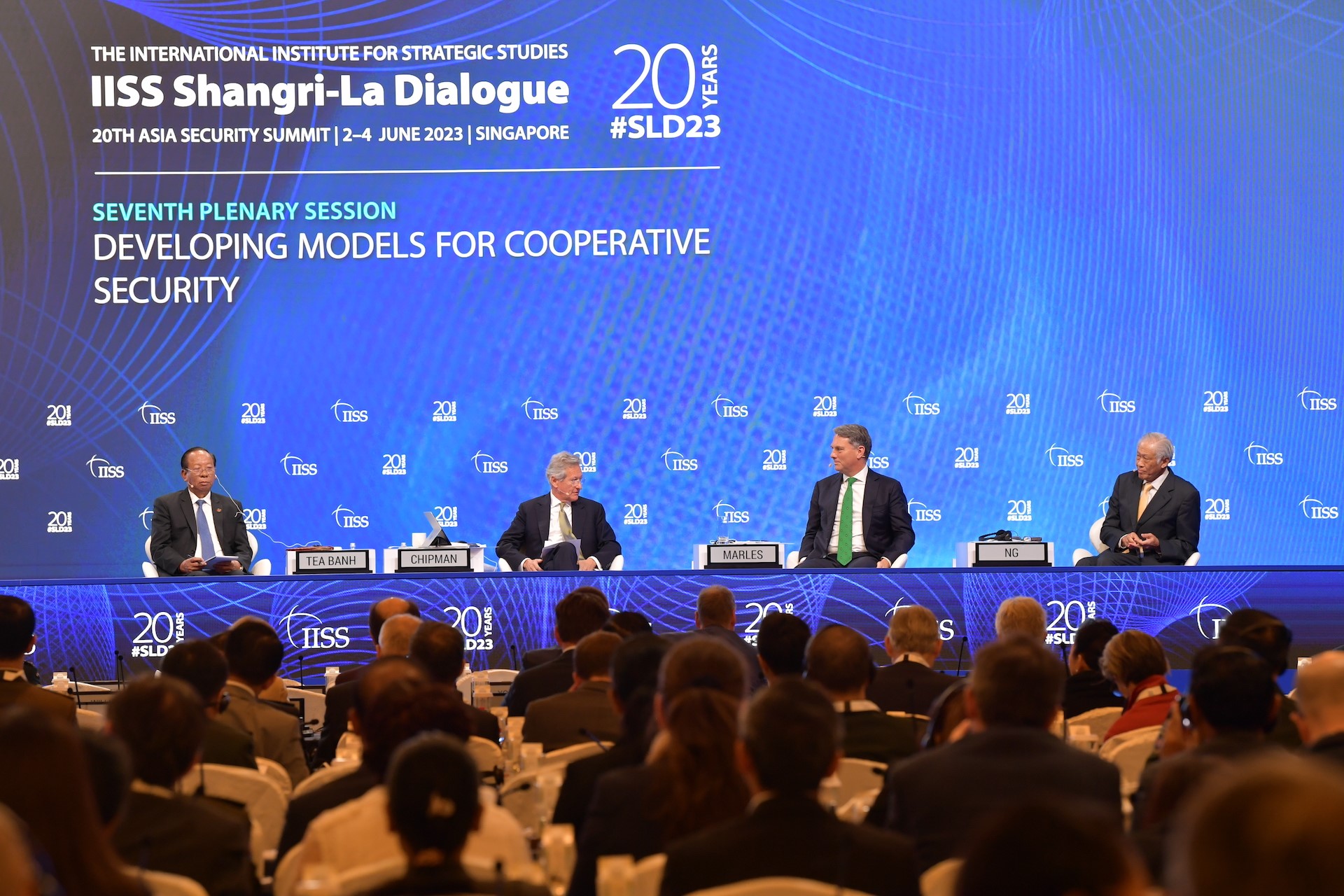
Shangri-La Dialogue sees frank discussion of security issues
04 Jun 2023
The 20th Shangri-La Dialogue, held from 2 to 4 Jun, saw ministers from around the world meet in Singapore to discuss key defence and security issues.
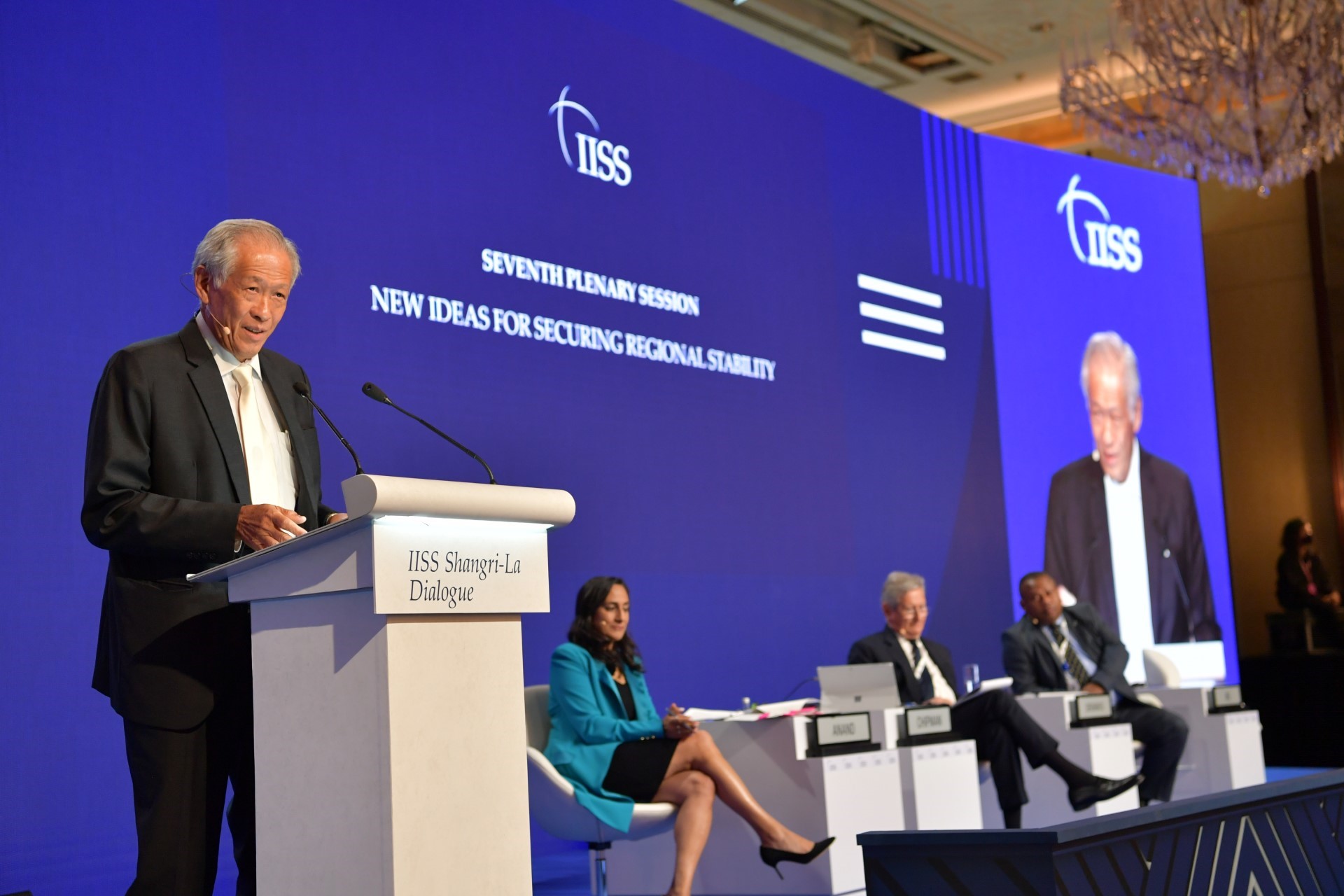
SLD remains valuable platform for crucial discussions: Dr Ng
12 Jun 2022
Minister for Defence Dr Ng Eng Hen spoke on the US-China relationship, the importance of a rules-based order and the role of ASEAN as a regional security platform at the 19th Shangri-La Dialogue (SLD).


